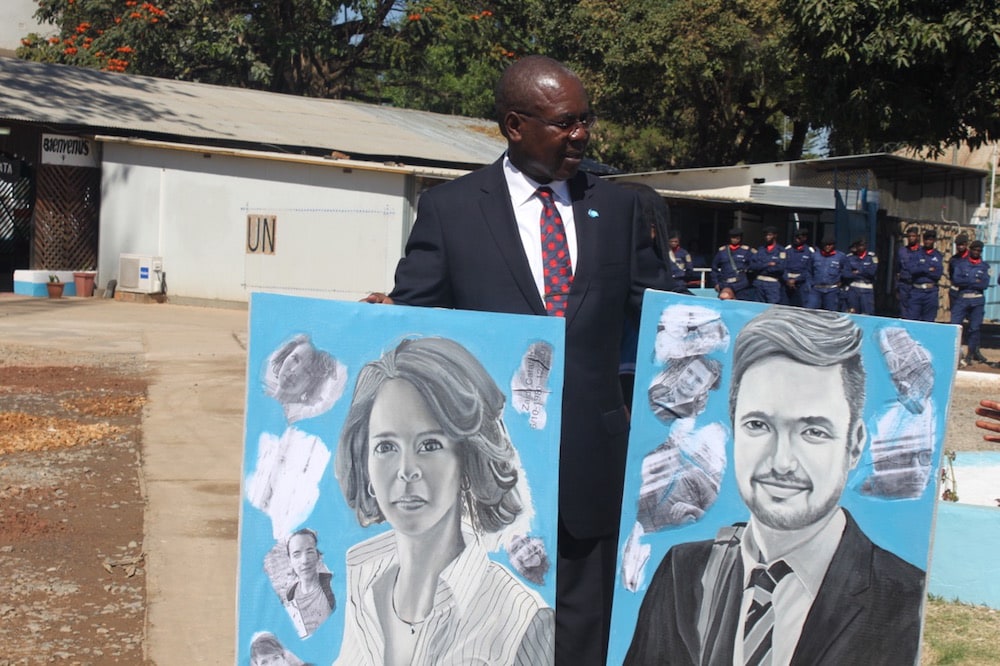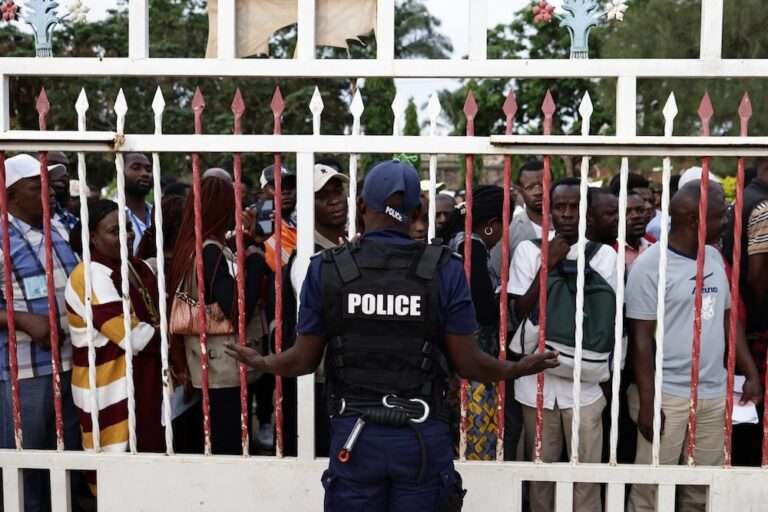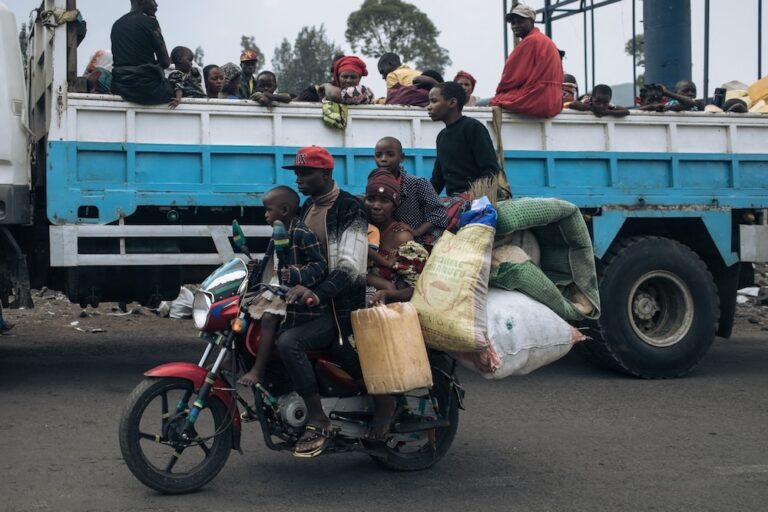Journalist Pierre Sosthène Kambidi has been detained since 20 September, over footage of the 2017 killing of UN experts Michael Sharp and Zaida Catalan that was in his possession.
This statement was originally published on cpj.org on 24 September 2021.
Congolese authorities should immediately release journalist Pierre Sosthène Kambidi and ensure the press across the country can work without fear or intimidation, the Committee to Protect Journalists said today.
On September 20, plainclothes military officers arrested Kambidi, a correspondent for Agence France-Presse and the local news website Actualite.cd, at the Sultani Hotel in the capital, Kinshasa, according to one of Kambidi’s lawyers, Gode Kabongo, who spoke to CPJ by phone; Actualite.cd publication director Patient Ligodi, who visited the journalist in detention on September 22 and spoke to CPJ by phone; and reports by Actualite.cd and Radio France Internationale (RFI), the French public broadcaster, where Kambidi occasionally contributes coverage.
The journalist was taken into custody and initially questioned as a witness in the case of the 2017 killing of U.N. experts Michael Sharp and Zaida Catalan in the country’s Kasai Central region, and was subsequently accused of the alleged crimes of terrorism, criminal association, and insurrection, according to the reports by Actualite and RFI. Kambidi has not been formally charged and is being held at the office of the auditor-general, an authority responsible for military justice in the country, according to Ligodi and those reports.
According to Ligodi and another report by RFI, Kambidi’s arrest was connected with the prosecutor’s desire to know how Kambidi came to possess footage of the killings of Sharp and Catalan, as well as how he knew details surrounding their deaths. Kambidi had participated extensively in reporting about the killings and other violence in the area, according to posts on Twitter by Sonia Rolley, an RFI reporter who covers the region, and Axel Gordh Humlesjö, an investigative journalist working for Sveriges Television, Sweden’s public broadcaster.
“Journalist Pierre Sosthène Kambidi should never have been arrested, and his detention without charge by military authorities sends a chilling message to the press in the Democratic Republic of the Congo,” said Angela Quintal, CPJ’s Africa program coordinator, in Durban, South Africa. “Congolese authorities must respect Kambidi’s right to keep his sources confidential, and should immediately release him and drop any investigation into his work.”
Military prosecutors questioned Kambidi about the case without a lawyer present on September 21, and U.N. experts appointed by the U.N. secretary general to assist in the investigation of Sharp and Catalan’s deaths participated via videoconference, RFI reported.
The following day, after Kambidi was granted access to a lawyer, authorities from the military further questioned him for about eight hours, according to Bienvenu-Marie Bakumanya, deputy director of the AFP bureau in the Democratic Republic of the Congo, who spoke to CPJ by phone after visiting Kambidi today to deliver him food. U.N. experts participated in this session as well, Bakumanya said.
Auditor-General Lucien-Rene Likulia Bakumi responded to CPJ’s phone call for comment by referring questions to Cyprien Muwawu, the magistrate responsible for Kambidi’s case. CPJ called Muwawu for comment, but no one answered.
Stéphane Dujarric, the spokesperson for U.N. Secretary General António Guterres, responded to CPJ’s emailed questions, including about the U.N. experts’ involvement in the questioning of Kambidi when his lawyer was not present. In his emailed reply, Dujarric reiterated points made in today’s midday briefing at U.N. headquarters in New York, a video of which was posted on the U.N. website. The experts assisting the investigation into Sharp and Catalan’s killings do not “interrogate witnesses or suspects directly,” he said, adding that “support provided by the U.N. includes guidance to ensure that the investigation is conducted in a manner consistent with international law.” He further added that at no point during the two days of questioning that the experts attended was Kambidi “asked or pressured” to “reveal his sources.”



